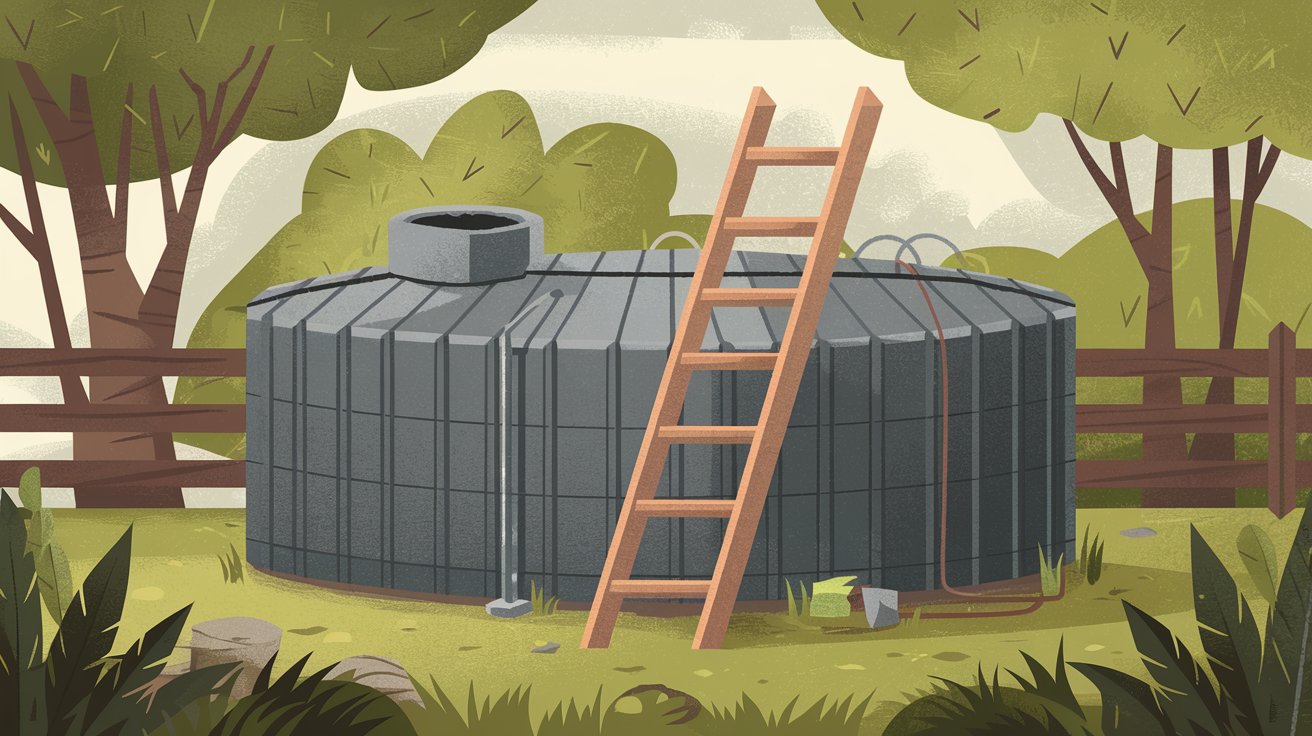Septic systems are the unsung heroes of homes not connected to municipal sewer lines. They quietly handle wastewater, keeping your household clean and functional. But when they’re neglected, the consequences can be messy—and expensive. That’s where septic tank treatments come in.
Table of Content
- What Is a Septic Tank?
- Why Are Septic Tank Treatments Necessary?
- Types of Septic Tank Treatments
- How Do Septic Tank Treatments Work?
- Signs Your Septic Tank Needs Treatment
- How Often Should You Use Septic Tank Treatments?
- Benefits of Using Septic Tank Treatments
- Common Myths About Septic Tank Treatments
- Septifix
- Septic Permit Links by State
Septic tank treatments are specially designed solutions that help keep your system efficient and trouble-free. These treatments break down waste, maintain the bacterial balance in your tank, and prevent costly clogs or backups. Whether you’re a new homeowner or a seasoned pro, understanding septic tank treatments is essential for maintaining a healthy and long-lasting system.
In this comprehensive guide, we’ll dive into everything you need to know about septic tank treatments: their purpose, types, benefits, and how to use them effectively.
What Is a Septic Tank?
A septic tank is an underground chamber that collects and treats wastewater from your home. Think of it as a private sewage system for properties that aren’t connected to a public sewer line.
Here’s a breakdown of how it works:
- Collection of Wastewater: All the water from your sinks, toilets, showers, and washing machines flows into the septic tank.
- Separation of Waste: Inside the tank, waste separates into three layers: solids settle at the bottom as sludge, oils and grease float to the top as scum, and liquid waste, or effluent, occupies the middle layer.
- Effluent Disposal: The effluent is released into the drain field, where the soil naturally filters it, removing harmful bacteria and nutrients.
While a septic tank is a low-maintenance system, it’s not maintenance-free. Over time, waste can accumulate, and natural bacteria may diminish, leading to problems. This is why regular septic tank treatments are so important.
Why Are Septic Tank Treatments Necessary?
Septic tank treatments play a critical role in keeping your system running efficiently. Here’s why they’re essential:
Preventing Costly Clogs and Backups
Without proper care, sludge and grease can build up in your tank, leading to blockages. When this happens, wastewater has nowhere to go and can back up into your home. Treatments break down this waste before it becomes a problem, saving you the hassle and expense of emergency repairs.
Maintaining a Healthy Bacterial Balance
Your septic tank relies on bacteria to decompose organic matter. However, everyday activities like using antibacterial cleaners or flushing non-biodegradable items can kill these helpful bacteria. Treatments replenish and support these microorganisms, ensuring your system functions as it should.
Improving Drain Field Performance
The drain field is a critical component of your septic system. By keeping effluent clean and reducing solid waste, treatments protect the drain field from becoming clogged or overwhelmed, extending its lifespan.
Reducing Odors
A malfunctioning septic system can produce unpleasant smells that waft into your yard or home. Treatments help control these odors by breaking down waste and balancing the microbial environment.
By using treatments regularly, you can avoid common septic problems and enjoy a trouble-free system for years to come.
Types of Septic Tank Treatments
Septic tank treatments come in various forms, each designed to address specific issues. Here’s a closer look at the most common types:
1. Biological Additives
These treatments are made from live bacteria and enzymes that naturally break down organic matter in your septic tank. Biological additives are environmentally friendly, safe for your system, and ideal for routine maintenance.
- Pros: Eco-friendly, effective at reducing sludge, and non-toxic.
- Cons: Require regular use for best results.
2. Enzyme-Based Solutions
Enzyme treatments target specific substances, such as fats, oils, and grease (FOG). They’re particularly useful for households with heavy kitchen waste.
- Pros: Great for reducing grease buildup, easy to use.
- Cons: Less effective on solid waste or older buildup.
3. Chemical Treatments
Chemical solutions use strong agents, like sulfuric acid or lye, to dissolve clogs and kill bacteria. While they can be effective in emergencies, they’re not ideal for regular use due to potential environmental harm and tank damage.
- Pros: Fast-acting and powerful.
- Cons: Risk of environmental damage and tank corrosion.
Choosing the right treatment depends on your specific needs. For most households, biological or enzyme-based solutions are the safest and most effective options.
How Do Septic Tank Treatments Work?
Septic tank treatments enhance the natural processes in your tank by introducing bacteria, enzymes, or chemicals that:
- Break Down Waste: Treatments decompose solids, grease, and organic matter, preventing buildup that can clog the system.
- Maintain Efficiency: By replenishing bacteria, treatments ensure your tank continues to process waste effectively.
- Protect the Drain Field: Reducing solid waste in the tank prevents it from reaching and damaging the drain field.
When used consistently, treatments help your system stay healthy and avoid the need for expensive repairs.
Signs Your Septic Tank Needs Treatment
How do you know when it’s time for treatment? Look out for these common signs:
- Slow Drains: If your sinks, toilets, or showers are taking longer than usual to drain, it could indicate a buildup in the system.
- Foul Odors: Persistent, unpleasant smells around your tank or drain field are often a sign of trouble.
- Pooling Water: Soggy spots in your yard, especially near the drain field, suggest your system isn’t processing wastewater correctly.
- Frequent Backups: If wastewater is backing up into your home, your tank may be overloaded or need bacterial support.
If you notice any of these issues, act quickly to prevent further damage.
How Often Should You Use Septic Tank Treatments?
The frequency of treatments depends on several factors, including:
- Household Size: Larger families produce more wastewater, requiring more frequent treatments.
- Tank Size: Smaller tanks fill up faster and may need extra care.
- Water Usage: Homes with high water usage are more likely to overwhelm the system.
As a general guideline:
- Use biological treatments monthly to maintain bacterial balance.
- Use enzyme treatments every three to six months to address grease and fats.
Always follow the manufacturer’s recommendations for best results.
Benefits of Using Septic Tank Treatments
Septic tank treatments offer a host of benefits, including:
- Extending System Life: Regular treatments reduce wear and tear, helping your septic tank last longer.
- Preventing Costly Repairs: By addressing issues early, treatments save you from expensive emergency fixes.
- Improving Efficiency: Treatments keep everything flowing smoothly, preventing slow drains and backups.
- Environmental Protection: Eco-friendly treatments help safeguard local water supplies and soil quality.
Investing in treatments is a small cost compared to the expense of repairing or replacing a septic system.
Common Myths About Septic Tank Treatments
Let’s debunk some popular misconceptions:
- “Pumping Is Enough”: While pumping removes solids, treatments maintain bacterial balance and prevent future problems.
- “All Treatments Are the Same”: Each treatment is designed for specific issues; choosing the wrong one may not solve your problem.
- “DIY Methods Are Just as Good”: While some DIY options (like baking soda) can help in small ways, they don’t replace professional-grade treatments.
Understanding these myths can help you make informed decisions about your septic system.
Septic tank treatments are a vital part of maintaining a healthy, efficient wastewater system. They prevent clogs, maintain bacterial balance, and protect your drain field, all while saving you money on repairs. From biological additives to enzyme solutions, the right treatment can keep your system running smoothly for years to come.
Don’t wait for problems to arise—invest in septic tank treatments today and enjoy peace of mind!
Septic Regulations in Rural Areas: Essential Guide for Rural Property Owners
The Role of Perforated Pipes in Drain Fields
What Happens During a Pumping Service?
Septic Tanks vs. Sewer Systems | Choosing the Right Option
Directory | Virginia Septic Service Providers | Part 2
Directory | Virginia Septic Service Providers : Best Professionals | Part 1
Septic Treatments for Odor Control: Best Methods for Eliminating Unpleasant Smells
How to Maintain a Healthy Bacteria Balance | Tips to Ensure Your Septic System Has the Right Microbial Environment
Septifix










